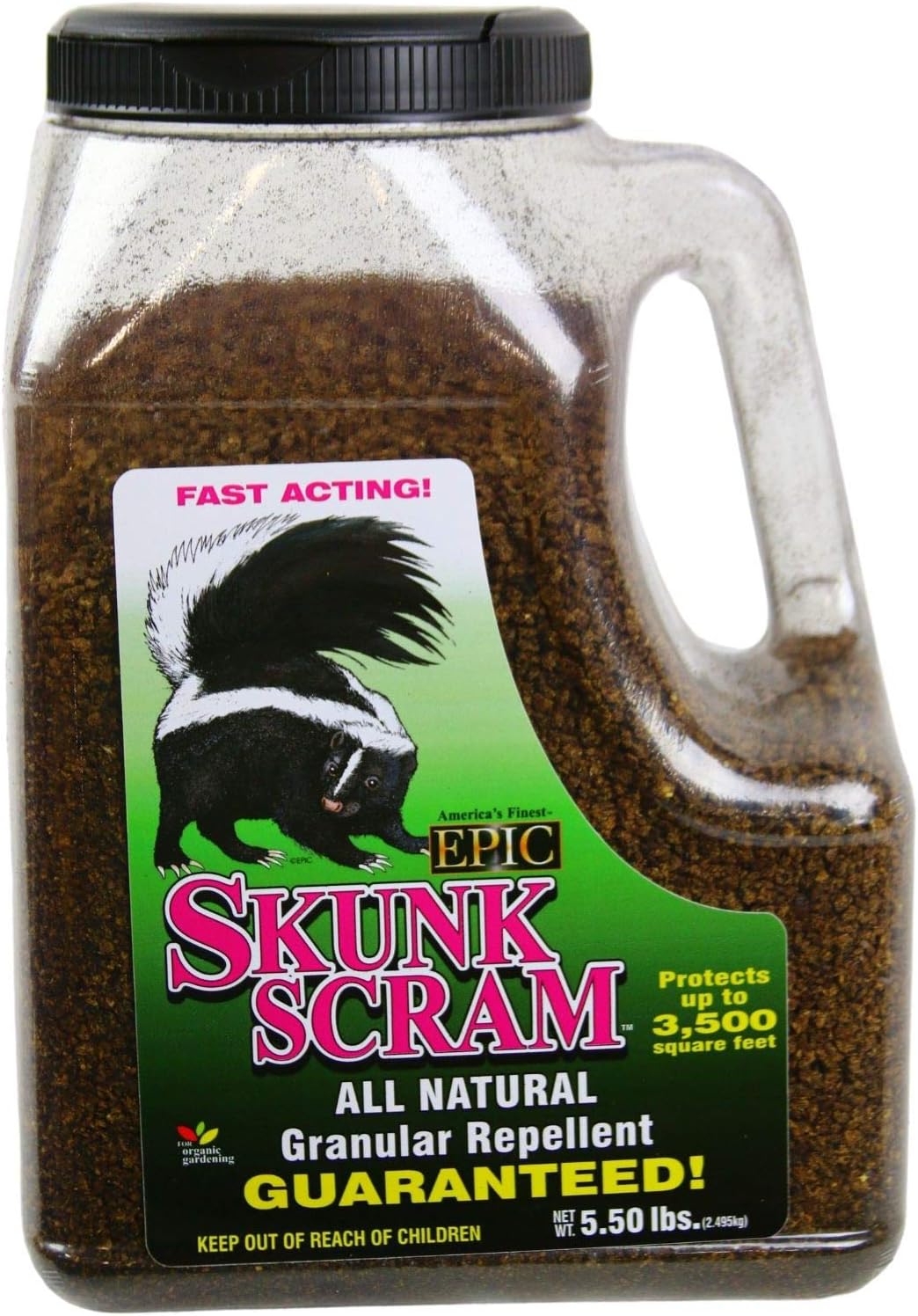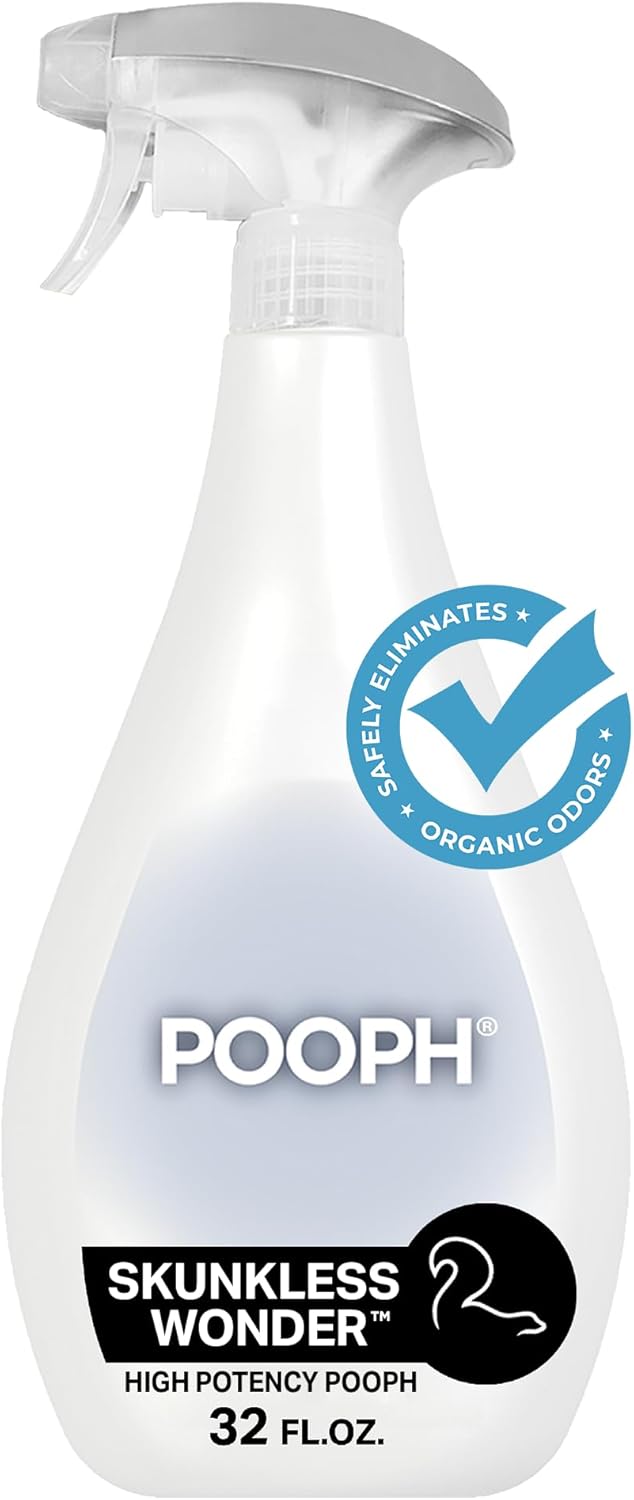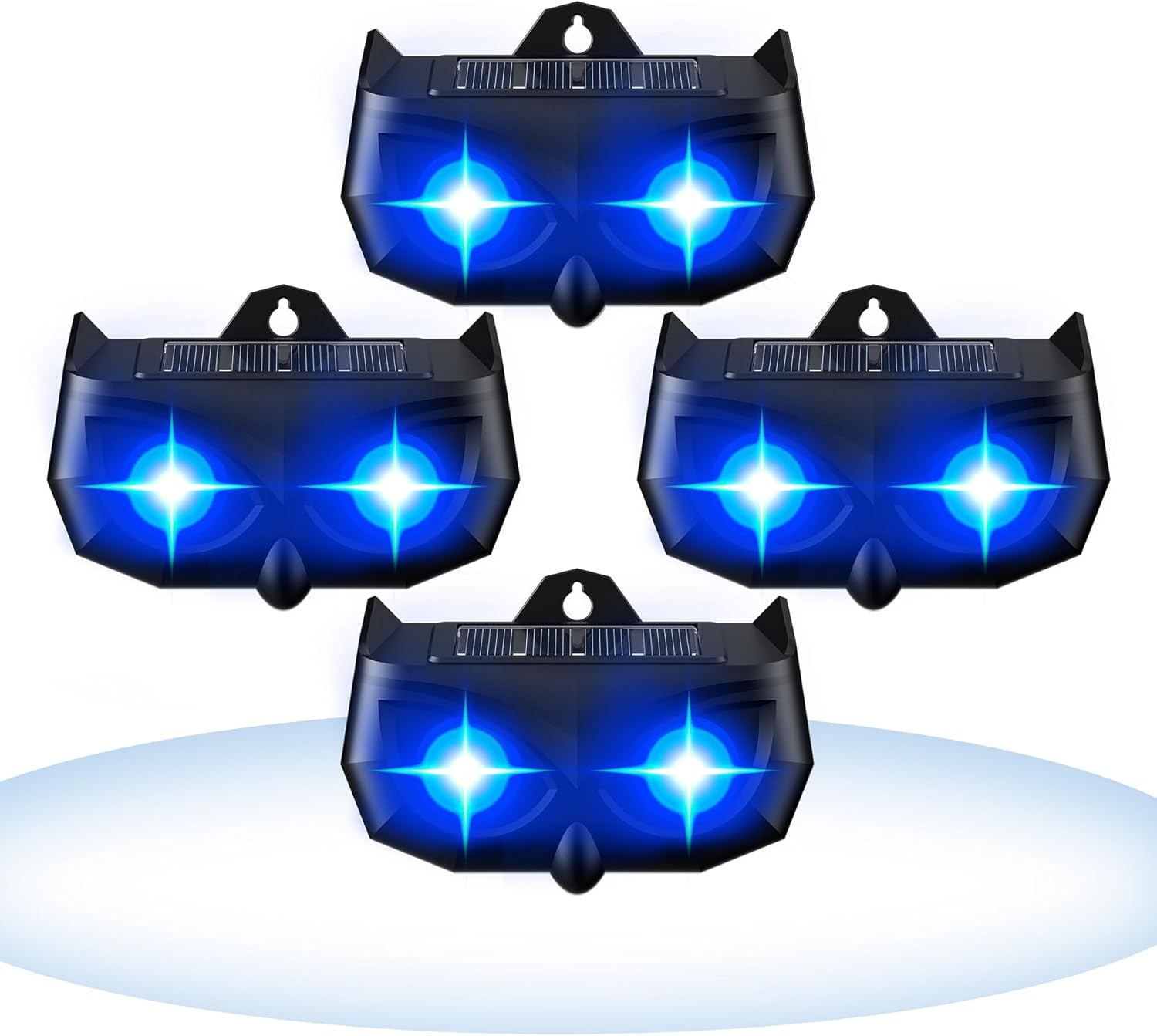Skunk Control & Removal
Skunks become problematic when they take up residence under structures or in yards, creating risks through their defensive spraying and burrowing habits. While these animals help control garden pests, their presence near homes can lead to unpleasant encounters and property damage. Professional removal is often necessary due to their defensive capabilities and potential for rabies.
Recommended Products
Epic Skunk Repellent Granules
A dual-action granular repellent that deters skunks through both taste and smell. This easy-to-use formula provides up to 30 days of protection for landscaping, gardens and structures even through normal rainfall.
- Dual Sensory Deterrent
- Weather Resistant
- Simple Application
- Monthly Protection
POOPH Skunkless Wonder
A powerful, fragrance-free spray that eliminates skunk odors at the molecular level. This patented formula breaks down skunk oils on contact while remaining safe for use on pets, fabrics, and furniture without leaving stains or residue.
- Molecular Elimination
- Non-Staining Formula
- Chemical-Free Solution
- Versatile Application
X-PEST Solar Animal Repeller
A solar-powered nocturnal animal deterrent that uses dual-defense blue LED flashing lights and strobe effects to create an unwelcoming environment for predators. Features automatic dusk-to-dawn operation and weather-resistant construction for continuous outdoor protection.
- Dual Light Defense
- Solar Powered
- Weather Resistant
- Simple Installation
⚠️ Health & Safety Risks
- Defensive spraying
- Rabies transmission
- Burrowing damage
- Pet conflicts
- Garden destruction
🚨 When to Call a Professional
- Under structure denning
- Aggressive behavior
- Multiple skunks
- Property damage
- Daytime activity
🏥 Emergency Response
- Spray incident: Use neutralizer
- Bite occurs: Seek immediate care
- Pet sprayed: Use cleaning solution
- Structural damage: Assess and repair
- Rabid behavior: Contact authorities
🏡 DIY Removal Guides

How to Get Rid of Skunks: 7 Effective Methods for 2025
Skunks may be shy and intelligent creatures that benefit the ecosystem by controlling pests, but when they take up residence…
Read More →🛑 Prevention Tips
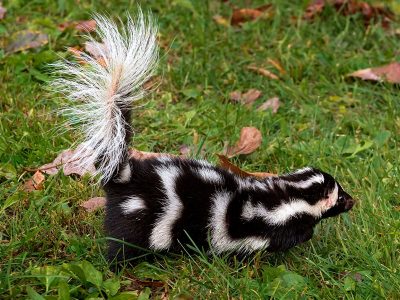
8 Best Skunk Repellents of 2025: Effective Solutions to Keep Skunks Away
Dealing with skunks on your property can be a stressful experience. These nocturnal animals not only leave behind a notorious…
Read More →🛡️ Health & Safety Information
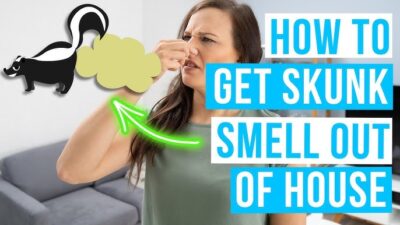
How to Get Skunk Smell Out of Your House: 7 Proven Methods That Actually Work
Dealing with skunk smell in your home can be an overwhelming experience. The pungent odor can permeate walls, furniture, and…
Read More →🦨 Related Pests
Often found with:
- Raccoons - Similar habits
- Possums - Night activity
- Groundhogs - Burrowing
🔍 Signs of Activity
- Cone-shaped holes
- Musky odor
- Burrow entrances
- Night digging
- Grub damage
🏠 Common Areas
- Under decks
- Below porches
- Foundation areas
- Crawl spaces
- Dense vegetation
Frequently Asked Questions
How do I know if I have skunks?
Look for cone-shaped holes in lawns, burrow entrances near structures, musky odors, and night-time digging. Skunks leave distinct 3-4 inch deep holes while foraging.
What attracts skunks to my yard?
Food sources like grubs, insects, pet food, garbage, and fruit attract skunks. They also seek shelter under structures and in dense vegetation.
How do I prevent skunks?
Install barriers around structures, remove food sources, secure garbage, treat for grubs, and eliminate shelter opportunities. Motion-activated lights can help deter night activity.
Will a skunk spray without warning?
No, skunks typically give warning signs like stamping feet, raising tail, and turning back before spraying. They prefer to avoid confrontation when possible.
How do I remove skunk odor?
Use a mixture of hydrogen peroxide, baking soda, and liquid soap for fabrics and surfaces. Commercial neutralizers are available for larger areas and pets.
Are skunks dangerous?
While not typically aggressive, skunks can carry rabies and their spray causes severe discomfort. They may defend themselves if cornered or protecting young.
Can I remove skunks myself?
Professional removal is recommended due to spray risks and potential disease transmission. Many areas also require specific permits for skunk handling.
Do repellents work on skunks?
Most commercial repellents provide temporary results. Exclusion, habitat modification, and removing attractants offer more reliable long-term control.
What time are skunks most active?
Skunks are primarily nocturnal, being most active from dusk to dawn. Daytime activity may indicate illness or desperation for food.
How long does control take?
Professional removal typically takes 1-3 days, but complete exclusion and prevention may require several weeks of monitoring and maintenance.
